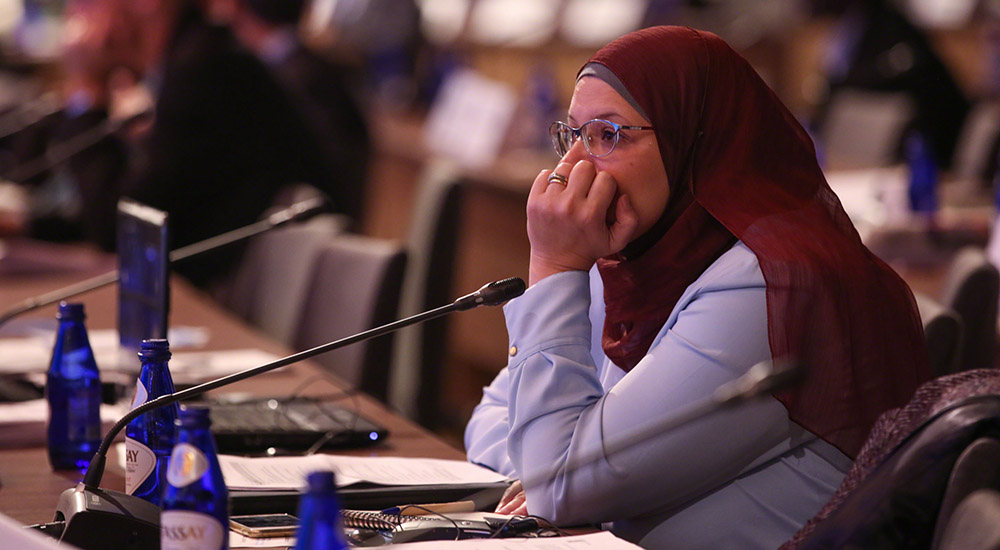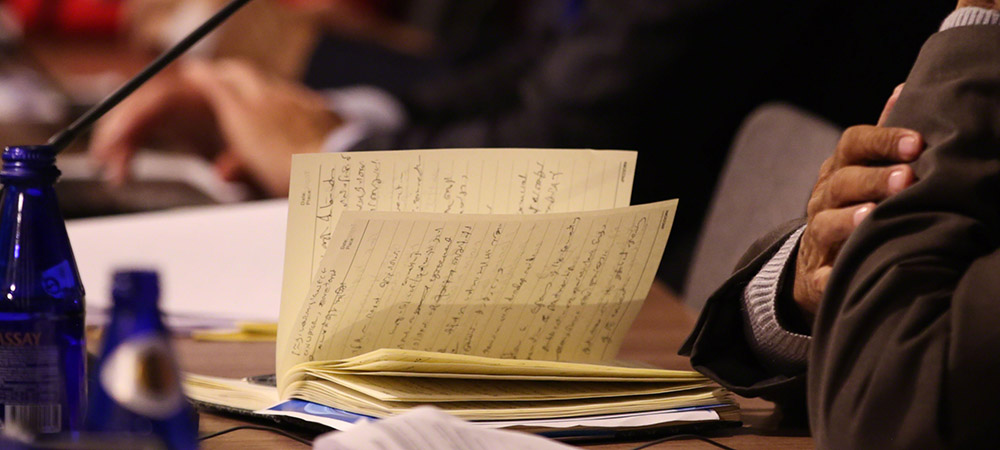On Friday, MOP8 participants resumed discussions on National Policy Dialogues and the European Water Initiative. They then moved into discussions on the water-food-energy-ecosystems nexus in transboundary basins, the International Water Assessment Centre, and efforts to identify, assess, and communicate the benefits of water cooperation. Representatives from the Sio-Malaba-Malakisi river basin in East Africa and Okavango-Cubango river basin in Southern Africa highlighted efforts to assess and communicate benefits of cooperation in their regions.
Delegates also discussed how climate change adaptation will compound management challenges in transboundary river basins worldwide. They heard a report from the African Development Bank on a training conducted in Dakar in June 2017 on how to prepare bankable projects for financing adaptation in transboundary contexts.
Delegates adopted the programme of work for 2019-2021 and approved the requested budget of US$12.1 million. The programme will further support the opening of the Water Convention to parties outside the pan-European region, facilitating accession of new parties, implementation of the Convention principles, and awareness raising about the benefits of transboundary water cooperation.
Estonia offered to host MOP9 in 2021.
Throughout the day, delegates from countries that share transboundary basins, rivers, and aquifers gathered at the entrance to the conference center to participate in a symbolic action. Groups from the Danube, Mekong, Okavango, and Kura basins, among many others, poured water into a globe to demonstrate their commitment to transboundary cooperation and water diplomacy.
At the close of the meeting, delegates adopted a package of decisions by acclamation and elected the new Chair, Vice-Chairs, and bureau members. Outgoing MOP Chair Peter Kovács expressed his appreciation to all colleagues for their contribution, and to the Water Convention Secretariat and the Kazakh hosts. In closing remarks, Yerlan Nyssanbayev, Deputy Minister of Agriculture, Kazakhstan, hailed MOP8 as milestone meeting, as it was the first with participants from all continents. MOP8 Chair Péter Kovács closed the meeting at 6:11 pm.
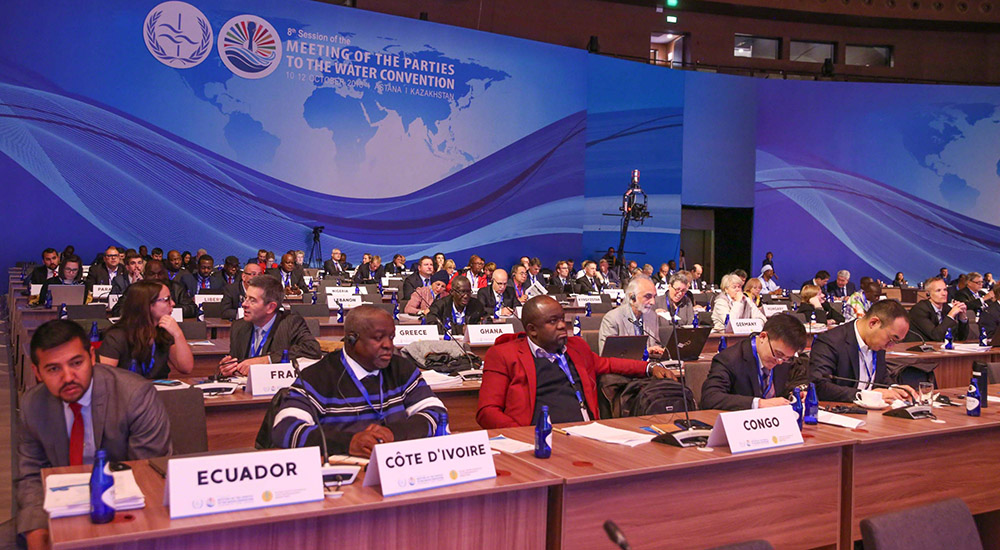
Delegates during the morning session
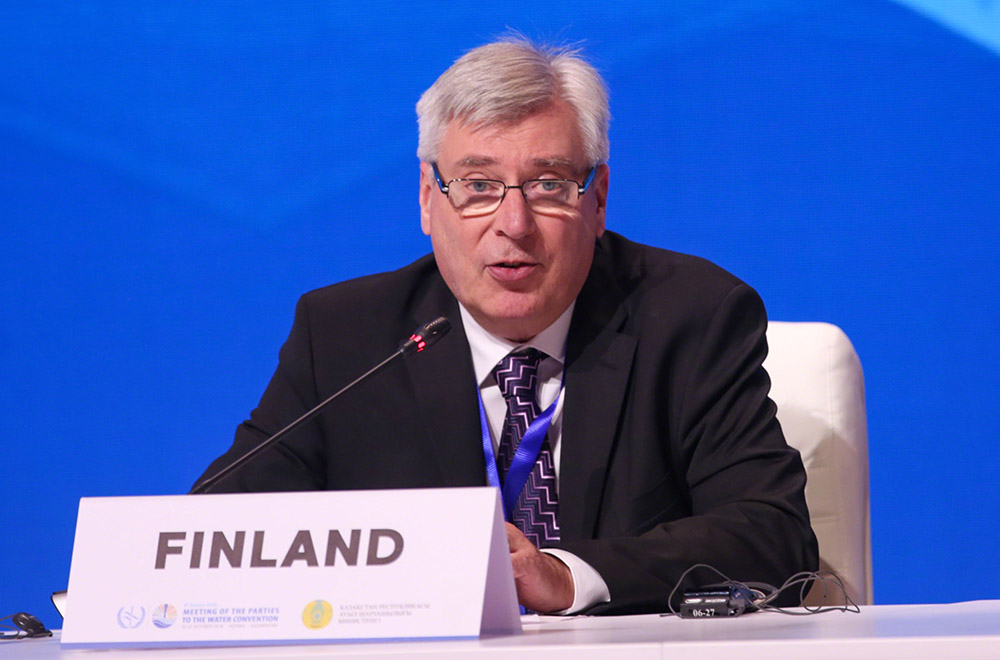
Seppo Rekolainen, Ministry of Agriculture and Forestry, Finland
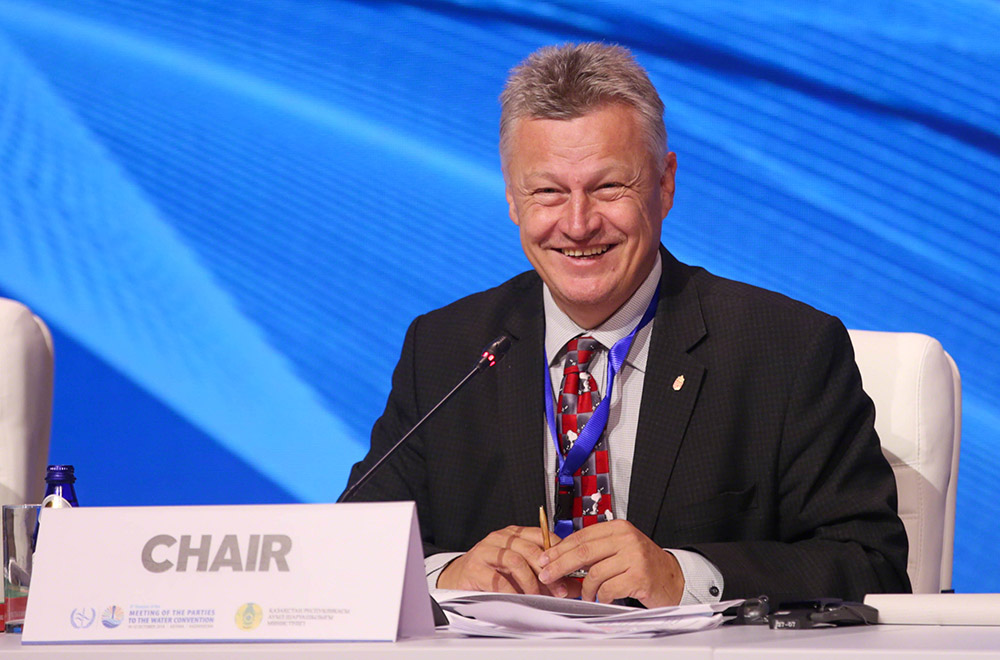
Péter Kovács, MOP8 Chair, Hungary
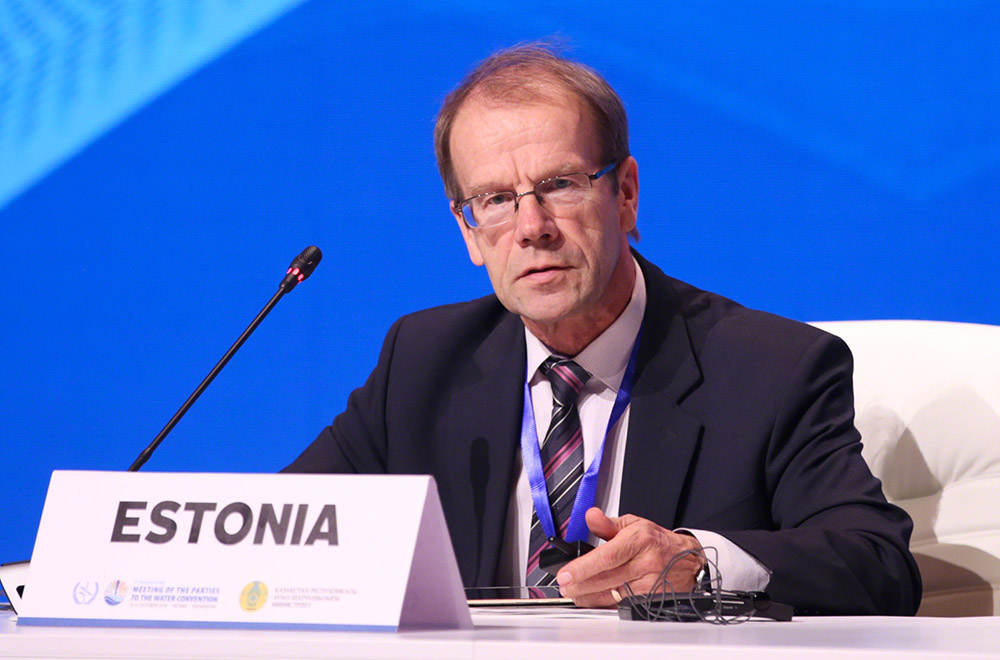
Harry Liiv, Ministry of Environment, Estonia
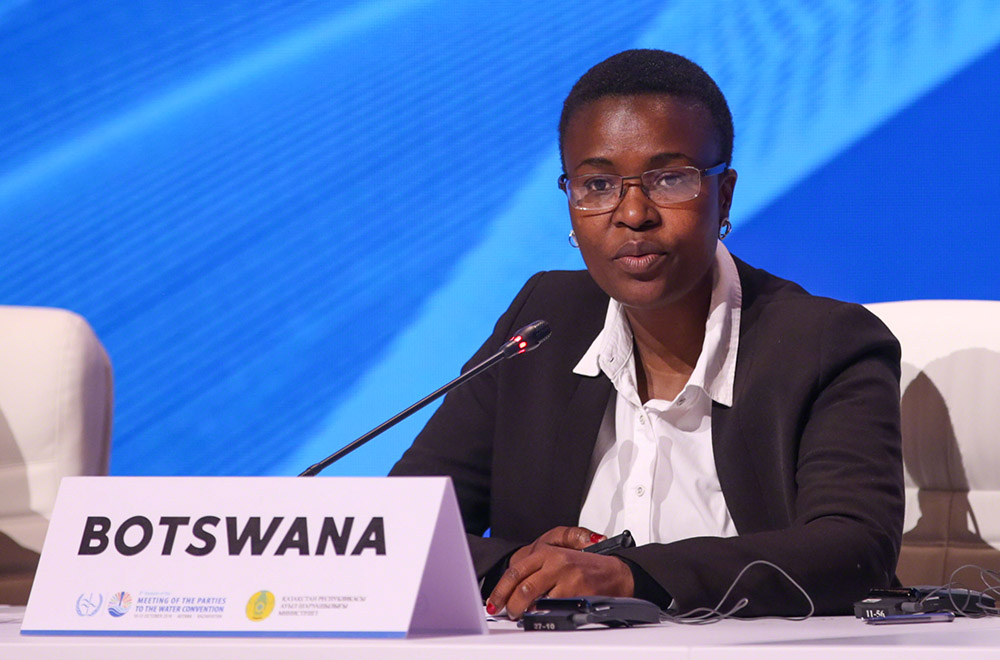
Tracy Molefi, Permanent Okavango-Cubango River Basin Commission (OKACOM), Botswana
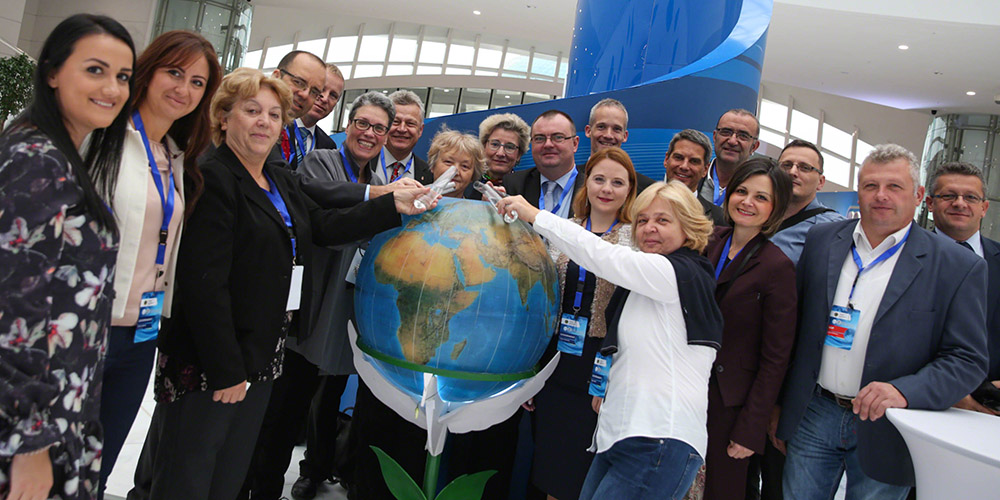
Delegates representing countries from the Danube basin pour water into a globe to symbolise their commitment to transboundary water cooperation
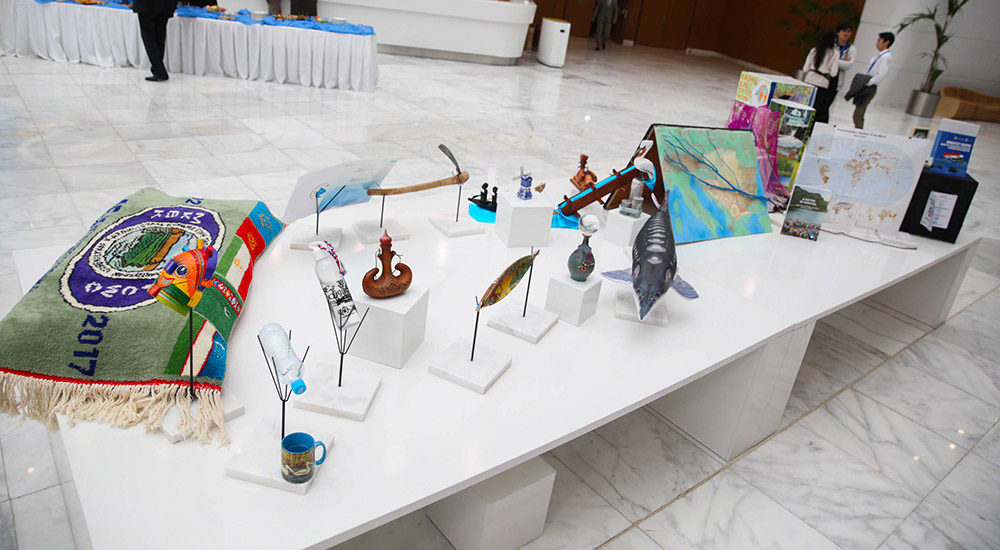
The 'single river of objects' artistic installation symbolizing the cooperation between parties that is necessary to achieve the Sustainable Development Goals (SDGs)
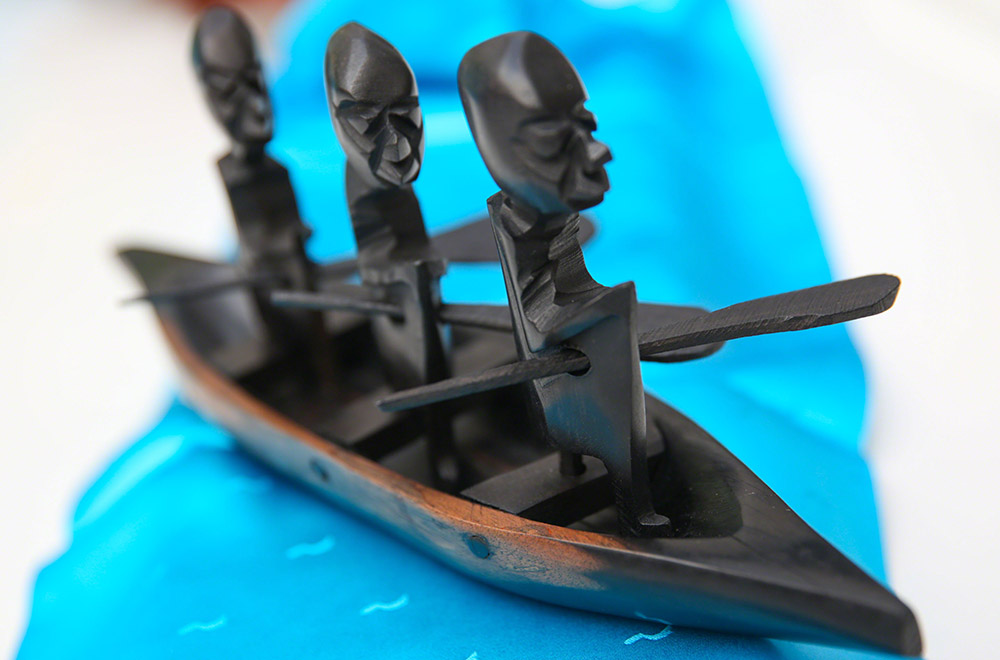
A wooden carving from West Africa, part of the 'river of objects' art installation
On Thursday, MOP8 delegates began the day with continued discussion on reporting under the Water Convention, with a focus on Sustainable Development Goal (SDG) Indicator 6.5.2 (proportion of transboundary basin area with an operational arrangement for water cooperation). Speakers highlighted the breakthrough the SDG indicator represents, as transboundary water cooperation is now included in the global indicator framework for the SDGs and targets of the 2030 Agenda for Sustainable Development. Representatives of UN-Water, UNECE, and UNESCO also presented on progress on reporting.
Delegates also discussed the opening of the Water Convention for adoption by countries outside the pan-European region, with the Secretariat commending Chad and Senegal as the first non-UNECE parties to join and noting that many other countries are in the process of joining. Mahamat Alifa Moussa, Secretary General, Ministry of Environment, Water, and Fisheries, Chad, and Niokhour Ndour, Ministry of Water and Sanitation, Senegal, presented on lessons learned in the accession process. Delegates also addressed the Water Convention’s increased visibility, major milestones since MOP7, and plans for future work. Nine additional countries announced their intention to accede.
Recalling that parties at MOP7 had decided to “make the Convention fit for its new global nature,” MOP8 adopted a new global strategy. The strategy includes key objectives to increase:
- awareness of and political support for the Water Convention;
- accession;
- support for implementation of the Convention and transboundary water management;
- support for implementation of water-related SDGs; and
- partnerships and synergies with other actors.
MOP8 also adopted decisions on: implementation and compliance; supporting application of the Water Convention through on-the-ground projects and capacity development; and the European Union Water Initiative and National Policy Dialogues.
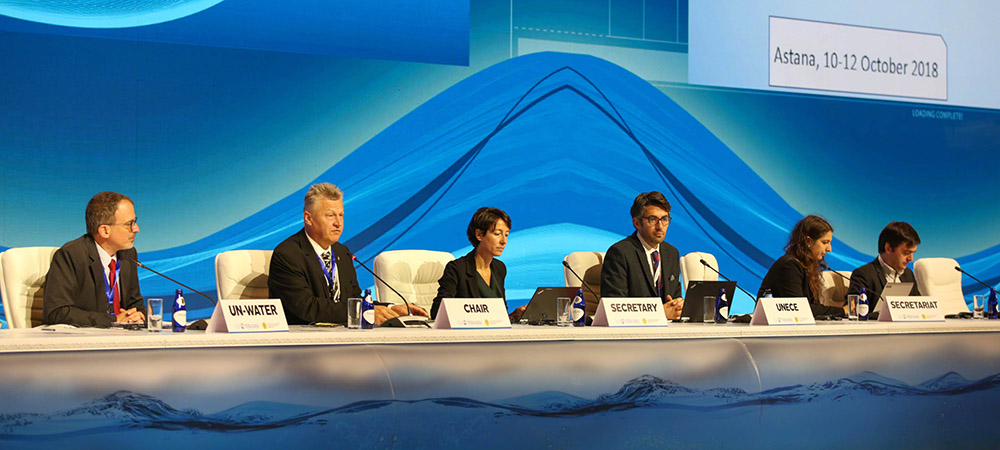
View of the dais during the morning session
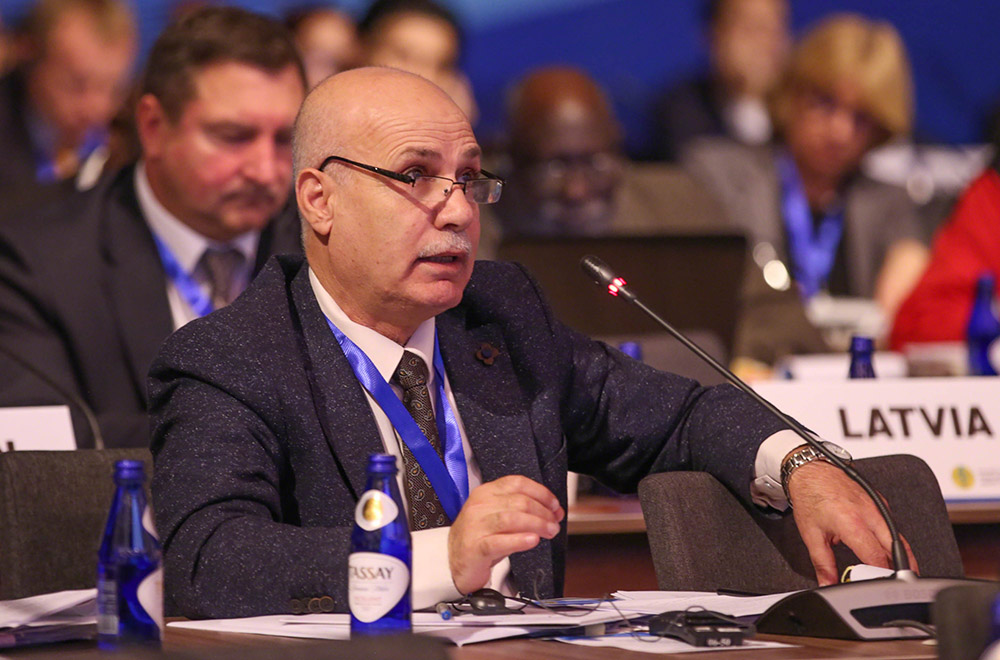
Jamal Mohsin Ali, Ministry of Water Resources, Iraq
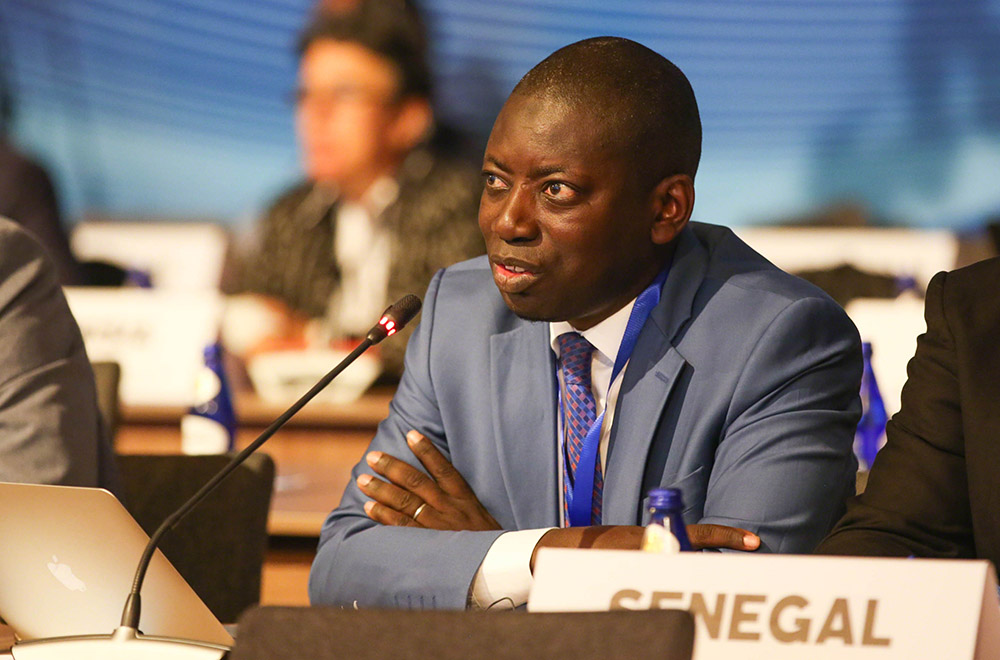
Niokhor Ndour, Ministry of Water and Sanitation, Senegal
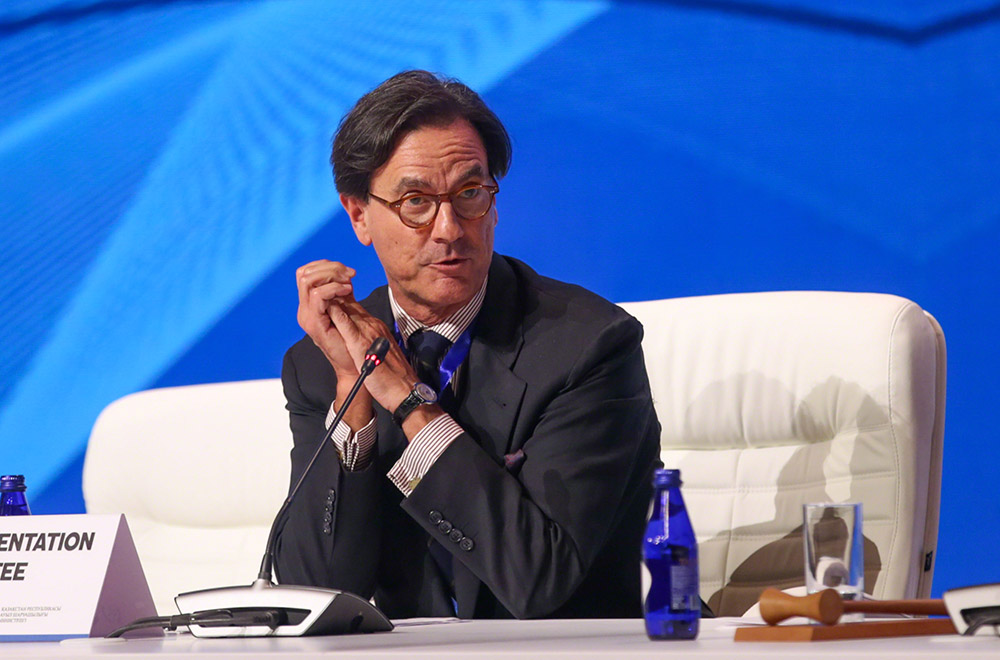
Attila Tanzi, Chair, Water Convention Implementation Committee
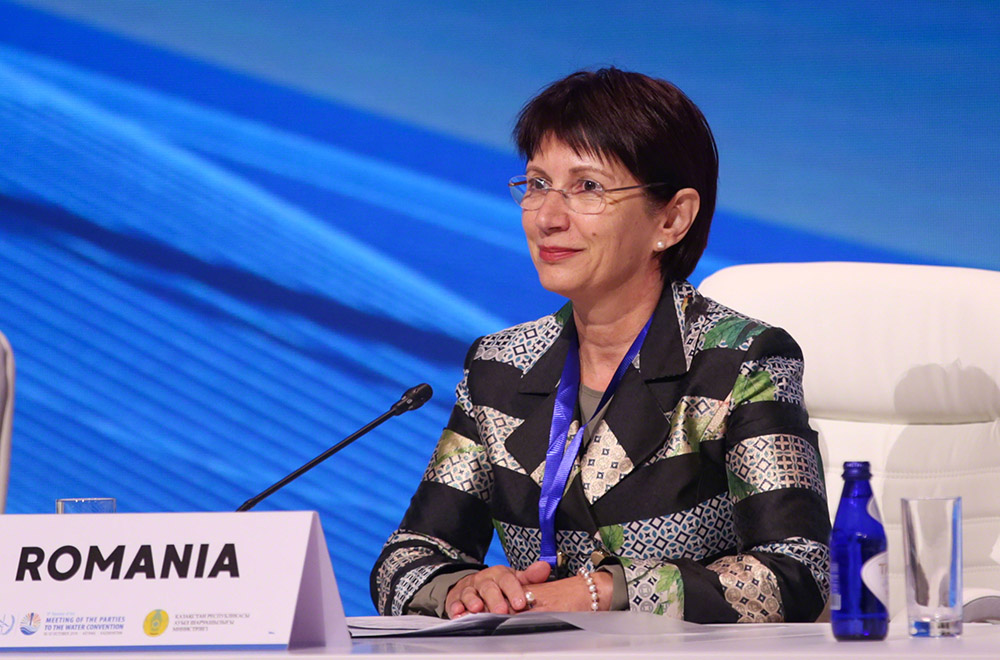
Carmen Neagu, Romania
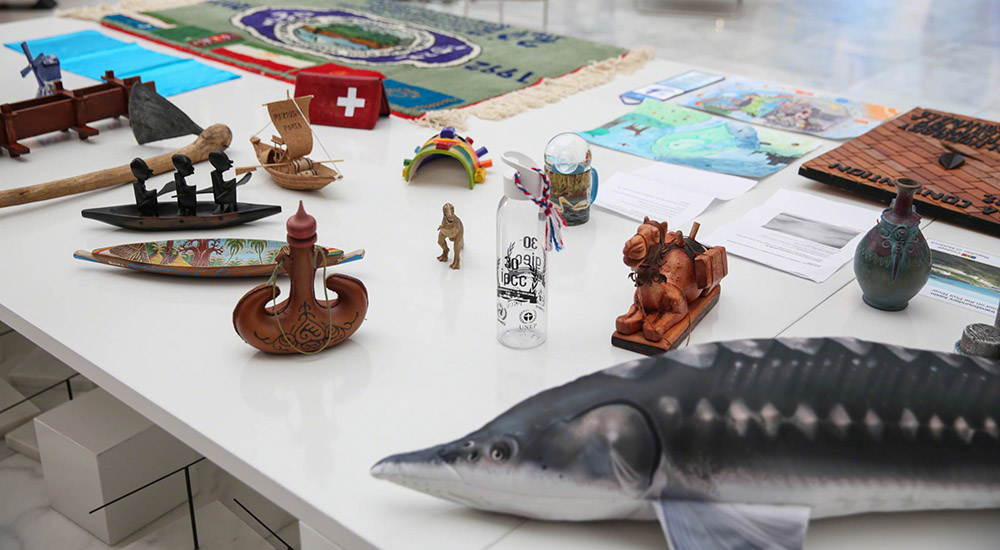
Objects brought by delegates that will feature in the art installation - a 'single river of objects' representing the cooperation between parties that is necessary to achieve the SDGs
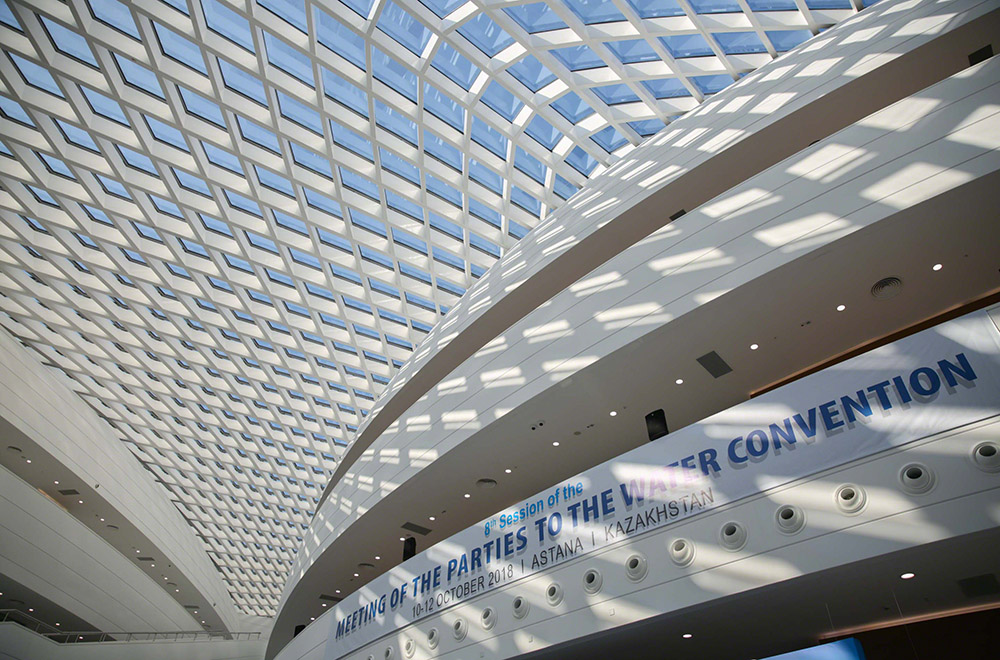
The first day of MOP8 begins in the Astana Expo Conference Centre
The eighth session of the Meeting of the Parties to the Convention on the Protection and Use of Transboundary Watercourses and International Lakes (Water Convention MOP8), serviced by the UNECE, opened today at the Astana Expo Conference Centre in Astana, Kazakhstan, with over 400 delegates from 93 countries.
Péter Kovács, MOP8 Chair, Hungary, opened the meeting. Nursultan Nazarbayev, President, Kazakhstan, addressed delegates via a video message. Olga Algayerova, Executive Secretary, UNECE, delivered a message on behalf of António Guterres, UN Secretary-General. Umirzak Shukeyev, Deputy Prime Minister and Minister of Agriculture, Kazakhstan, and Peter Szijjártó, Minister of Foreign Affairs and Trade, Hungary, also addressed delegates in the opening session. The opening session concluded with a video message from Michelle Yeoh, United National Development Program (UNDP) Goodwill Ambassador.
High-level delegates then took part in a two-part Special Session on transboundary water cooperation: “Sharing water for people, planet, prosperity, and peace.” Speakers highlighted:
- constructive examples of regional and transboundary cooperation;
- the need for robust legal frameworks and standardized criteria;
- methods and tools to increase mutual understanding and trust; and
- sharing water in the context of growing water scarcity.
Throughout the day, delegates contributed to an art installation by artist Carolina Caycedo. Delegates shared objects brought from their home countries that symbolize the transboundary waters, rivers, and lakes they share. From these objects, Caycedo will construct a “single river of objects” during the meeting, representing the cooperation between parties that will be necessary to achieve the 2030 Sustainable Development Goals.
Three side events also took place during the day, addressing: the water-food-energy-ecosystem nexus; participation of non-parties in the Water Convention; and opportunities for water diplomacy in conflict-prone regions.
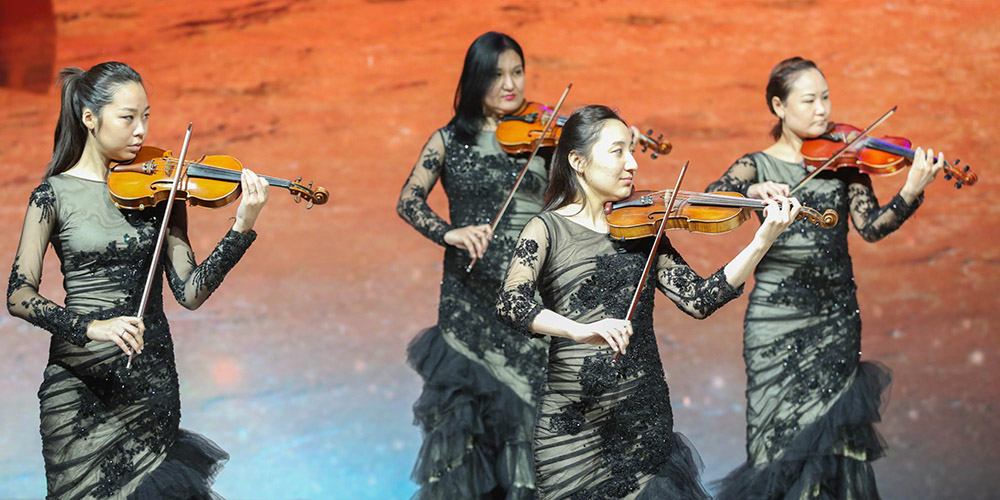
MOP8 opens with a musical performance
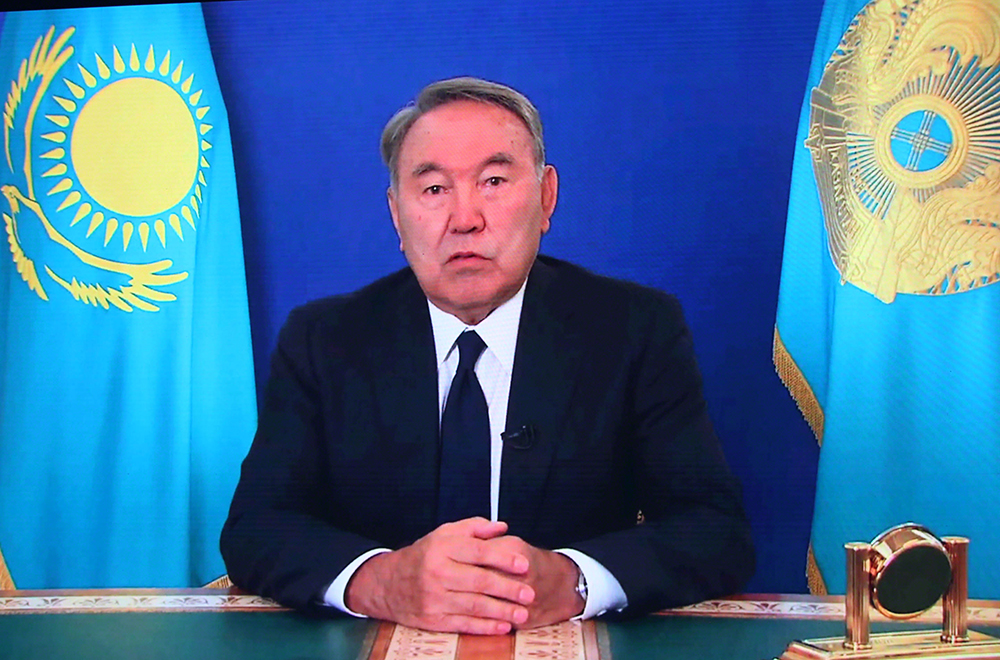
President Nursultan Nazarbayev, Kazakhstan, via video message
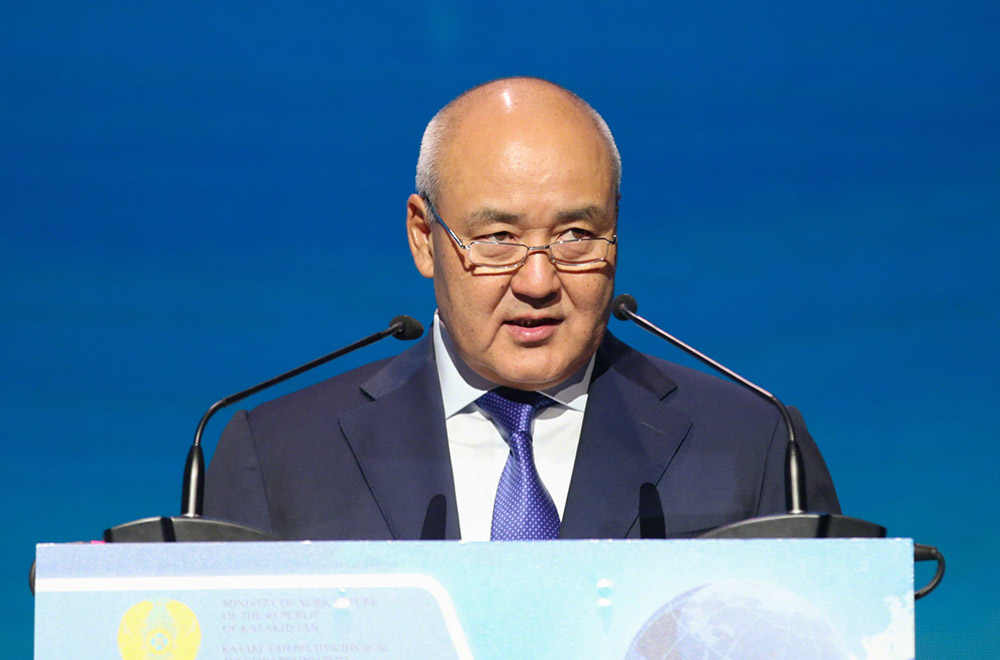
Umirzak Shukeyev, Deputy Prime Minister and Minister of Agriculture, Kazakhstan
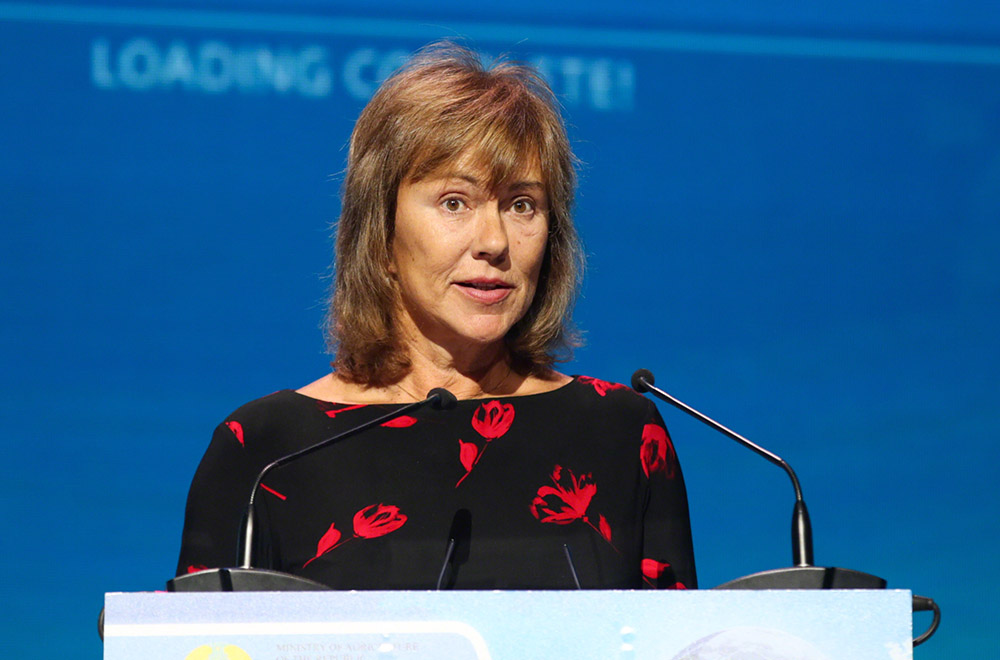
Olga Algayerova, Executive Secretary, UNECE
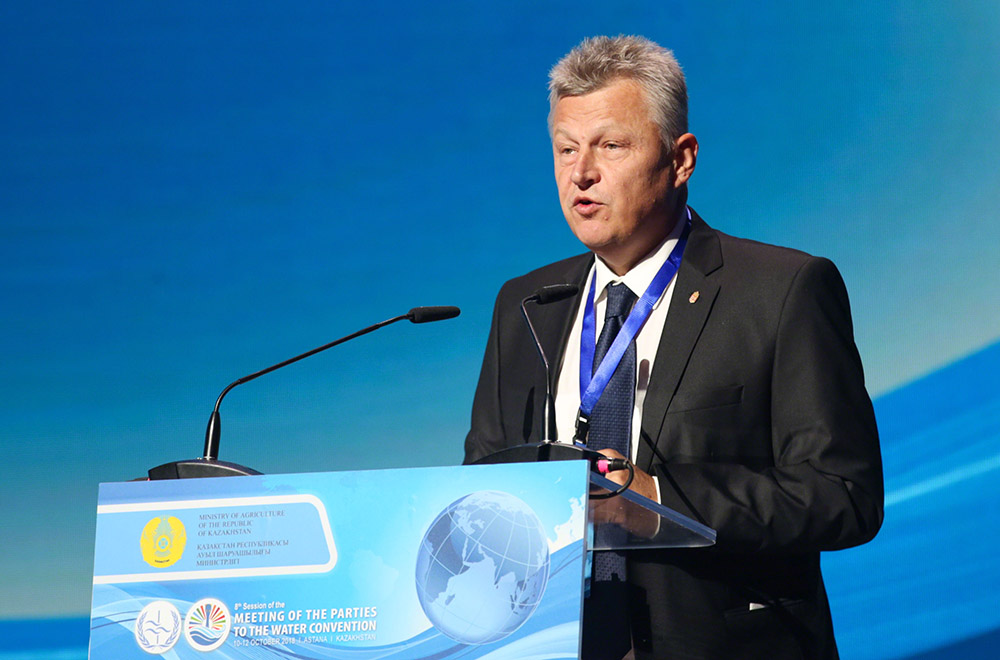
Péter Kovács, MOP8 Chair, Hungary
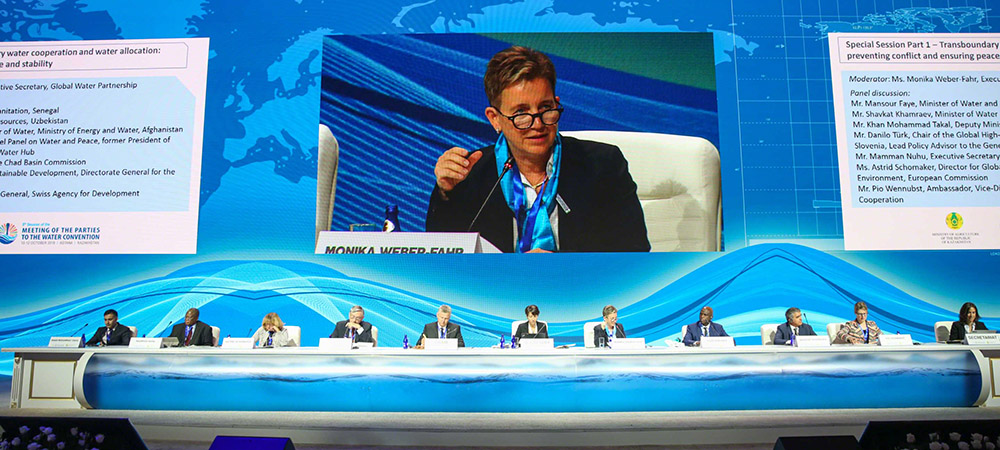
View of the panel, moderated by Monika Weber-Fahr, Executive Secretary, Global Water Partnership
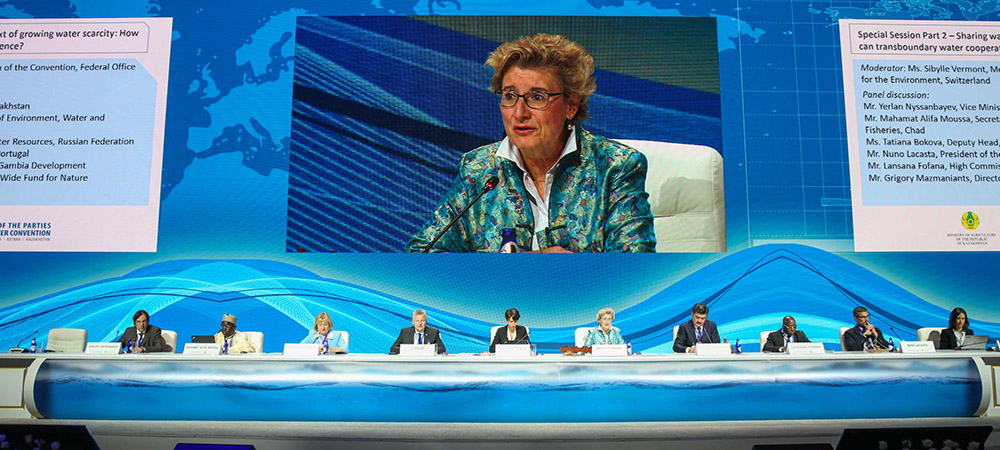
View of the panel during the afternoon session
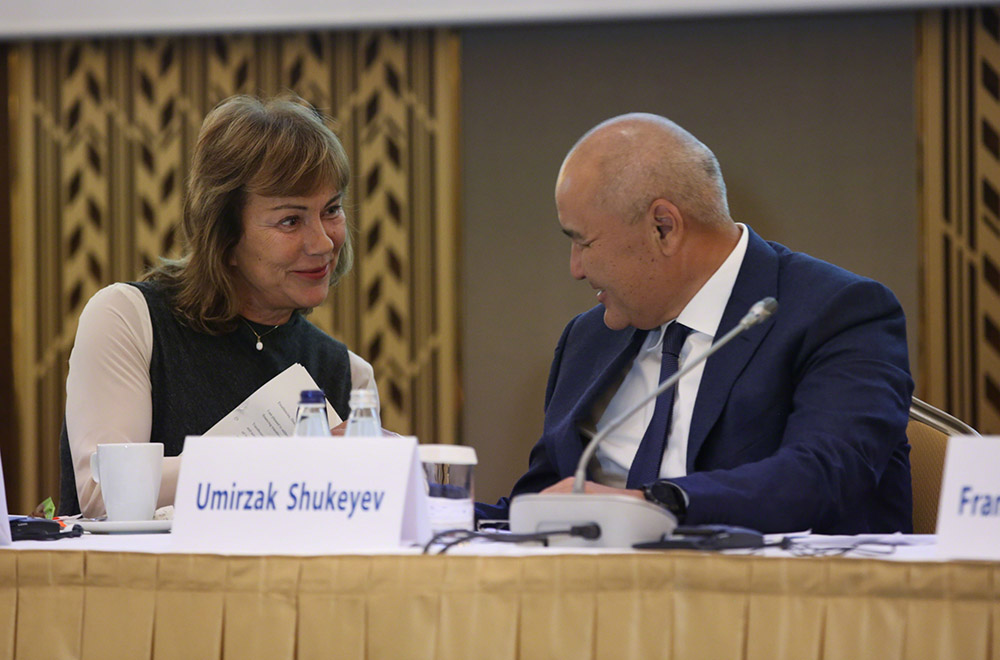
Olga Algayerova, Executive Secretary, UNECE, with Umirzak Shukeyev, Deputy Prime Minister and Minister of Agriculture, Kazakhstan
The eighth session of the Meeting of the Parties to the Convention on the Protection and Use of Transboundary Watercourses and International Lakes (Water Convention MOP8) serviced by the UN Economic Commission for Europe (UNECE) kicked off today in Astana, Kazakhstan with a high-level workshop on “Financing Transboundary Basin Development.” Over 80 participants from 29 countries gathered to discuss different financing sources for transboundary basin cooperation and how to match these sources to financing needs.
Welcoming participants to Kazakhstan, Umirzak Shukeyev, Deputy Prime Minister and Minister of Agriculture, Kazakhstan, highlighted the need for effective solutions for financing of and cooperation on transboundary basin development. Pio Wennubst, Swiss Agency for Development Cooperation, Olga Algayerova, Executive Secretary, UNECE, and Ato Brown, World Bank Country Manager for Kazakhstan, also addressed the attendees.
Participants then engaged in an interactive exercise on transboundary financing, followed by two ministerial roundtables. In the first roundtable, participants discussed:
- availability of domestic sources and mechanisms to access these sources;
- potential to mobilize the private sector, including through blended finance;
- the role of international funding sources, including climate finance;
- how basin investment plans and strategies can help mobilize financing; and
- how project preparation facilities support initial project development.
In the second roundtable, participants shared views on financing needs, including for information, water cooperation processes and institutions, and infrastructure.
Danilo Türk, Chairman, Global High-Level Panel on Water and Peace, moderated a concluding panel. Moderators for each of the roundtables reported on key messages and topics of discussion. Türk highlighted the differing modalities to fund transboundary water cooperation and underscored that the challenge is to bring them together.
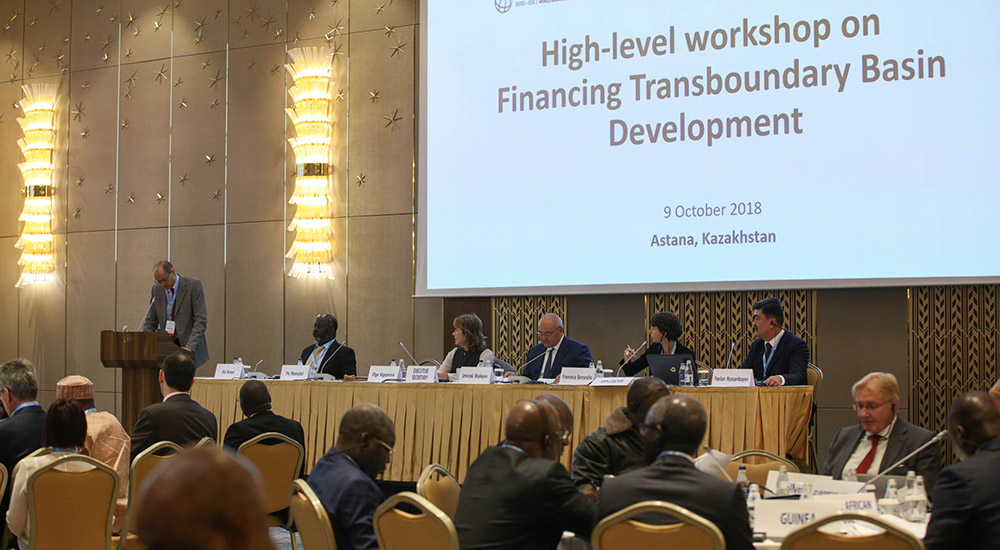
View of the dais during the opening session
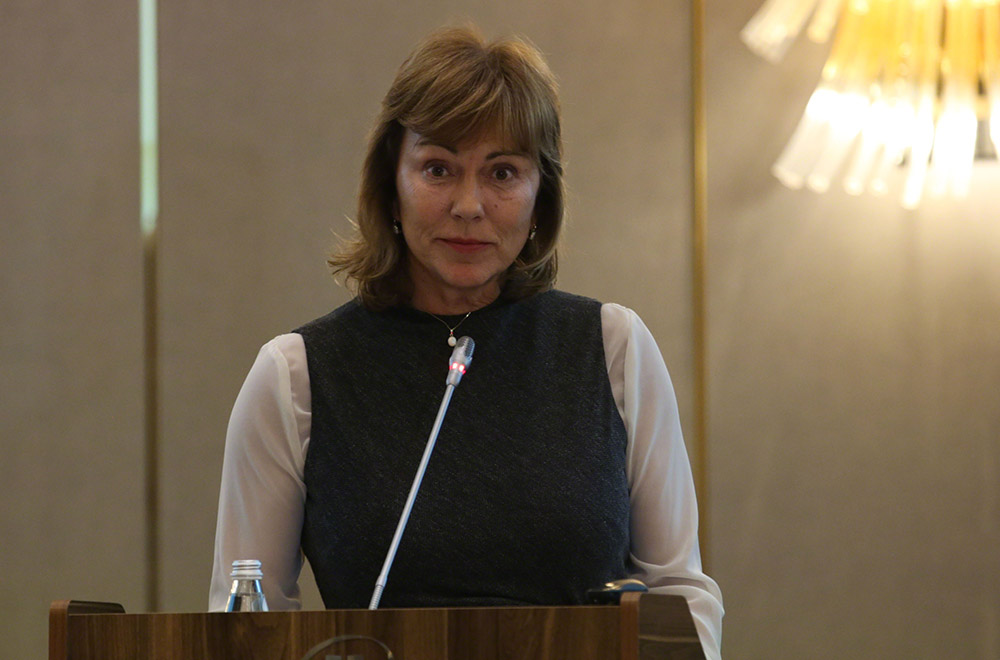
Olga Algayerova, Executive Secretary, UNECE
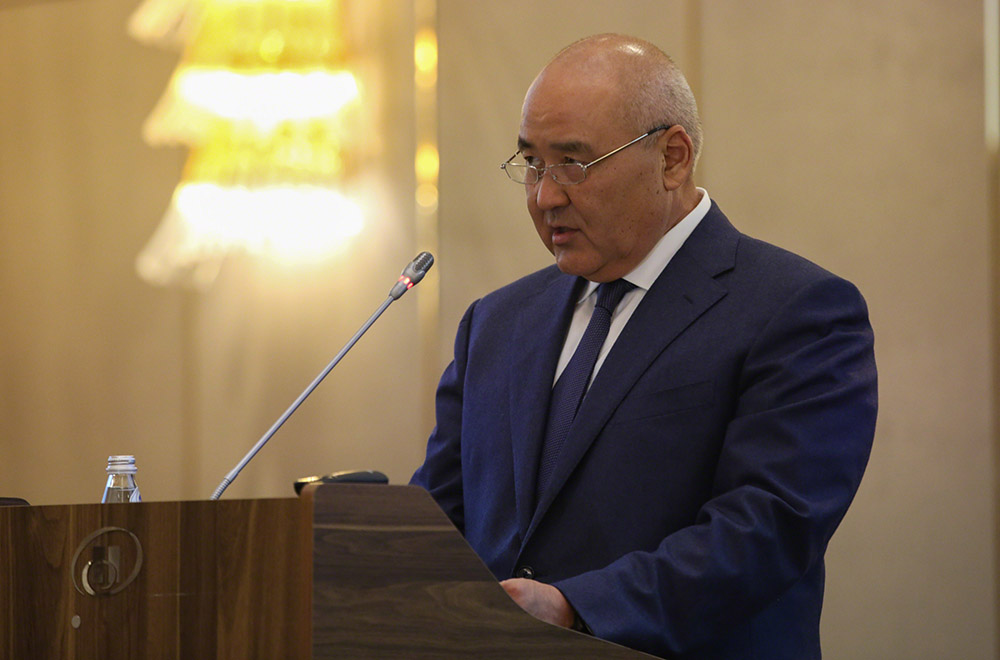
Umirzak Shukeyev, Deputy Prime Minister and Minister of Agriculture, Kazakhstan
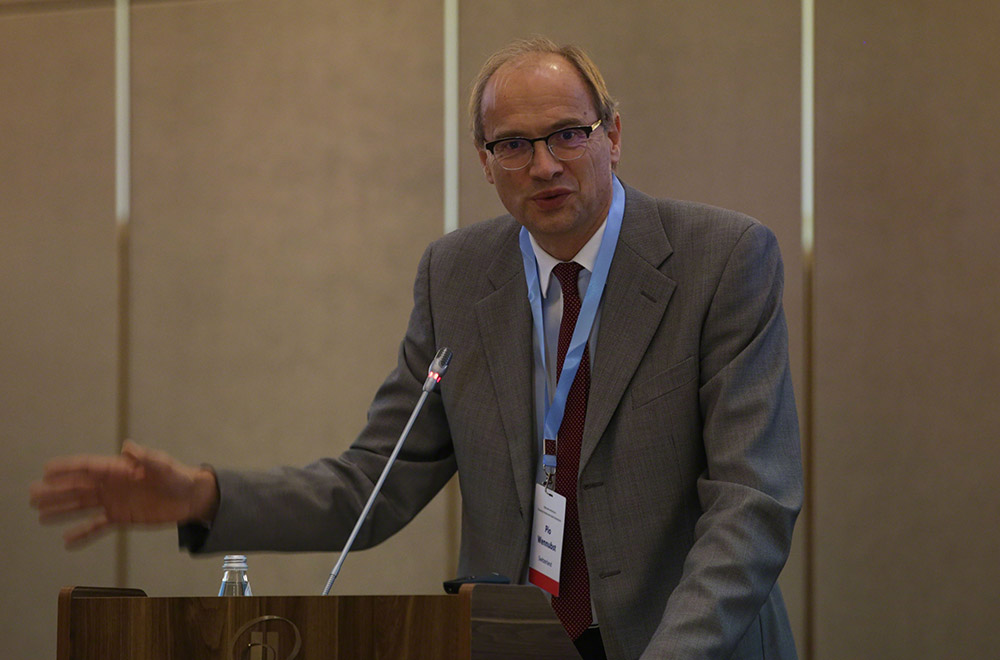
Pio Wennubst, Vice Director General, Swiss Agency for Development Cooperation (SDC)
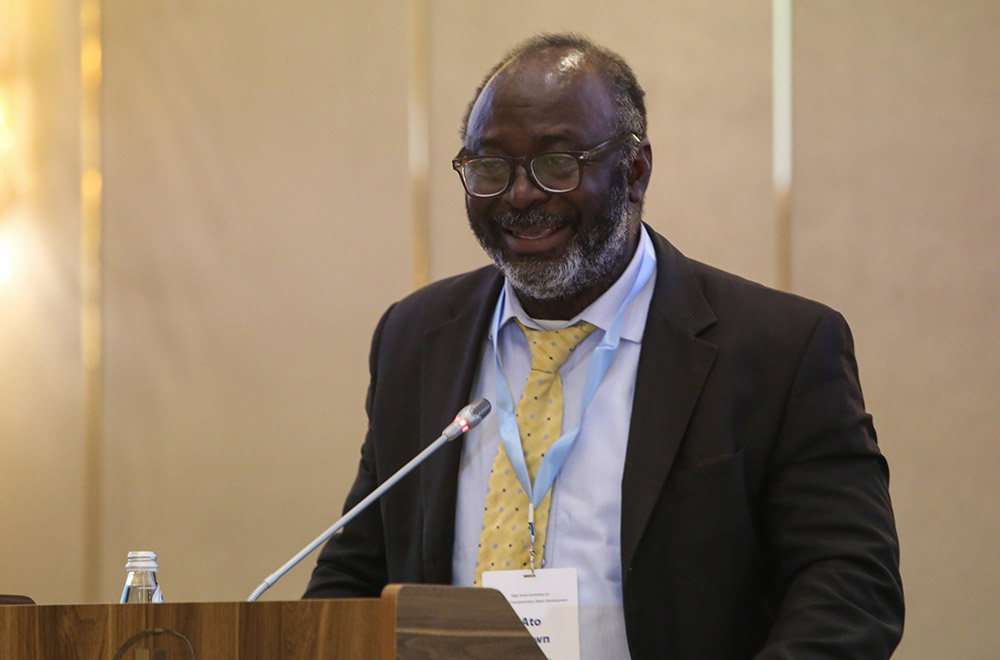
Ato Brown, World Bank Country Manager for Kazakhstan
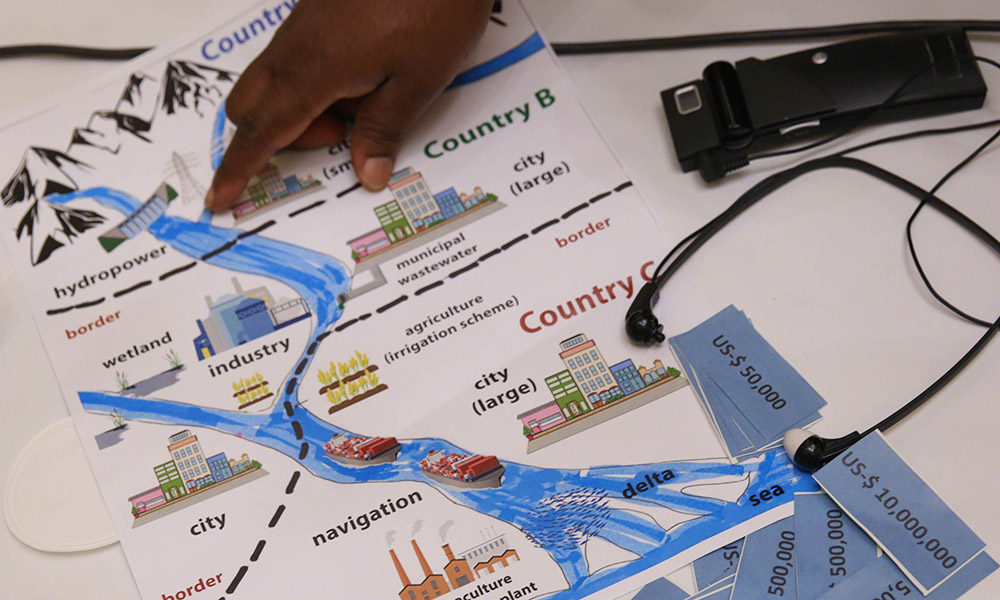
Delegates participate in an interactive exercise to discuss transboundary financing, examining the multiple uses and needs of water in and across different countries, discussing how to make the most optimal use of available funding, and placing monetary value for transboundary development categories
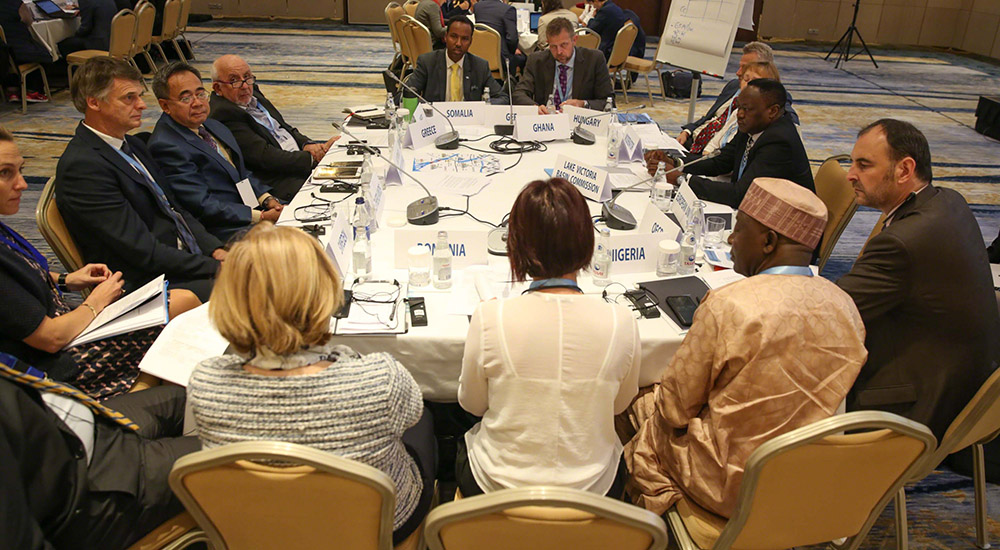
Theme 1 - What different domestic public sources are available and which innovative mechanisms can be used to tap them?

 Specific funding for IISD Reporting Services coverage of the Water Convention MOP8 has been provided by UNECE and the German Ministry of Environment, Nature Conservation and Nuclear Safety (BMU)
Specific funding for IISD Reporting Services coverage of the Water Convention MOP8 has been provided by UNECE and the German Ministry of Environment, Nature Conservation and Nuclear Safety (BMU)



